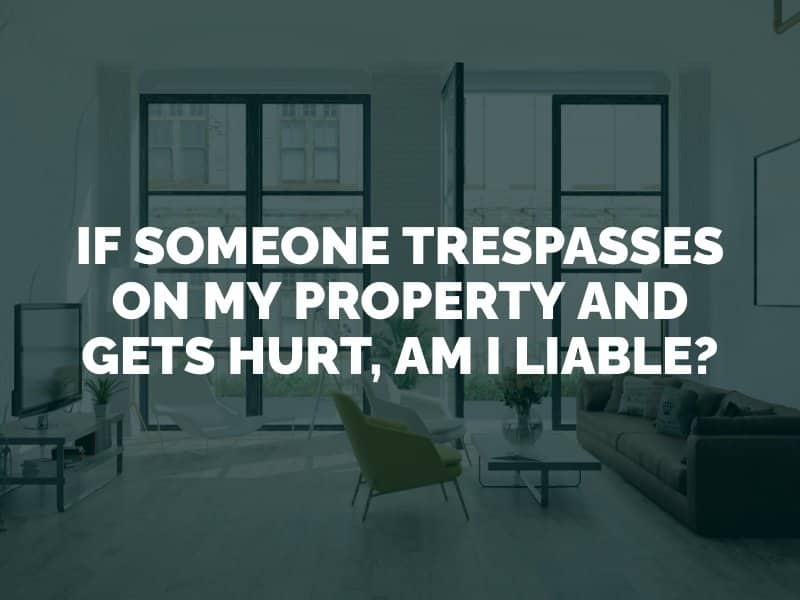A trespasser is someone who does not have permission or legal authority to enter your property in Colorado. Although the general rule is that a property owner is not responsible for the safety or well-being of a trespasser, there are several exceptions to the rule. Contrary to popular belief, it is possible to be held liable – legally and financially responsible – for a trespasser’s injuries, in certain circumstances. To determine if you are liable for someone getting hurt while trespassing on your property, ask yourself the following questions.

First, confirm if the individual was a trespasser or a licensee at the time of the accident. You will owe different duties of care to the person based on this distinction. A licensee has the right to be on your property, even if they did not ask your permission first. A licensee may enter your property for his or her own purposes, such as to visit you for personal reasons. A trespasser, on the other hand, is someone who does not have your permission, implied consent or legal authority to enter.
If the injured person was a trespasser, the next question to ask is the individual’s age. Colorado has different premises liability laws for trespassing minors – those under the age of majority (18). If the trespassing person is under the age of 18, you have an obligation as a property owner to keep the child reasonably free from harm, even if he or she does not have your permission to be there. In general, you must treat the underage trespasser like a licensee; you must repair any known hazards or defects on your property and post warning signs to protect the trespasser from harm, as is reasonable.
An attractive nuisance is a hazardous object, item or location on your property that has something about it that is attractive to children. Examples include a trampoline, barnyard animals, a lake or pond, a swimming pool, a hot tub, a treehouse, broken-down vehicles, or a well. If you have an attractive nuisance on your property, you have a legal responsibility to keep curious children away from danger, such as by using fences or gates. Colorado’s attractive nuisance law applies to all children, including trespassers.
You could also be found liable for an adult trespasser’s injuries if you caused them yourself through willful, wanton, reckless or intentional conduct. Unless you are acting in self-defense or defense of others, you lawfully cannot harm a trespasser on your property in Colorado. For example, you cannot discover a trespasser and then set up booby traps to injure them. In these scenarios, you could be held liable for any injuries that the trespasser suffers through your dangerous or willful conduct.
There is another exception involving dangerous dogs on the property. In Colorado, a “dangerous dog” is one that has officially been given this designation by an animal control authority. A dog might earn this title if it inflicts serious bodily injury or causes the death of a person or domestic animal. If you are a known harborer of a dangerous dog, you have a legal responsibility to take reasonable precautions to prevent injuries to others – even trespassers, depending on the situation.
Reasonable precautions can include posting a “Beware of Dog” sign or keeping your dog controlled on your property. If you took precautionary measures and a trespasser was still injured by your dog, despite knowing that the dog has dangerous propensities, the trespasser generally cannot hold you responsible for his or her injuries.
Cases involving injured trespassers in Colorado are complicated. For more information about this area of the law, contact an experienced Denver personal injury attorney near you.